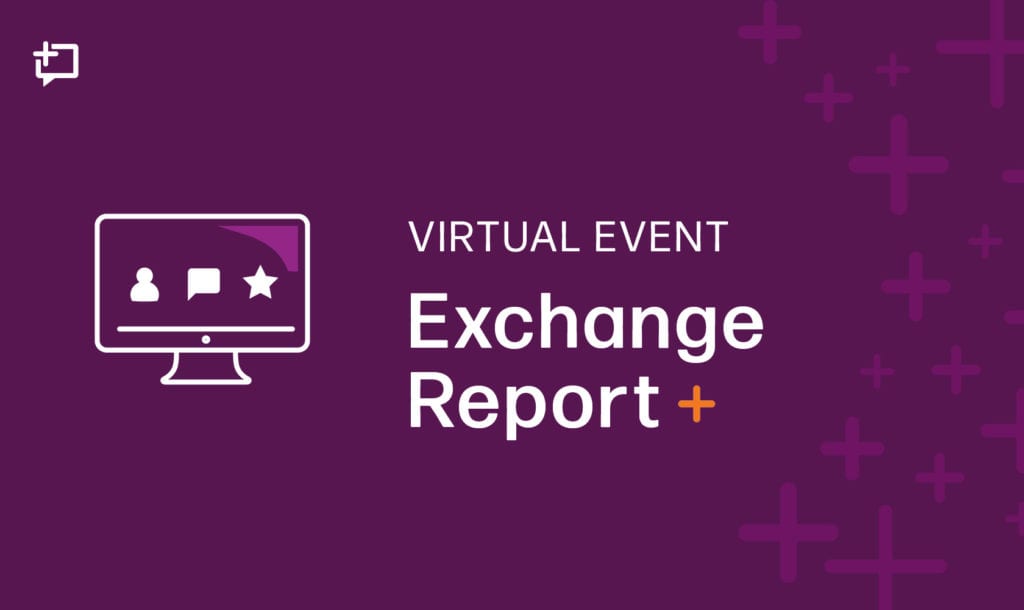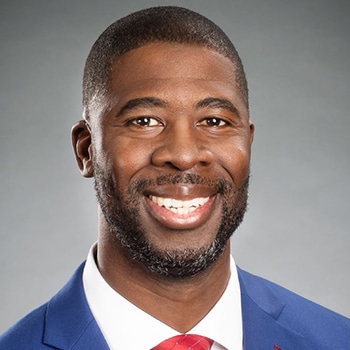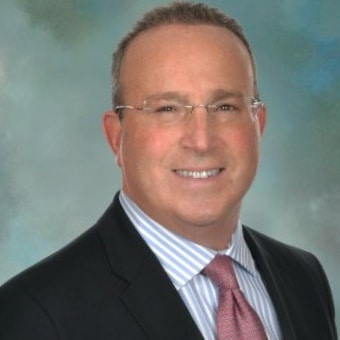Three Areas of Focus for Sales Success

Felipe is a pioneering sales, business development, and strategy leader with a proven track record of building new, highly profitable business lines across international boundaries. With extensive experience in digital sales, Felipe has a strong ability to drive team performance and forge valued internal and external partnerships. He is passionate about shaping the future of digital ventures.
Felipe is fluent in Spanish and Portuguese & proficient in French and Italian. He attended MIT for Mechanical Engineering and earned a Master’s in Business Administration from Kellogg.
Kelvin: We have Felipe Calderone – is going to close us out. He is the Head of Sales, of Agency and A-Tech for Google Cloud at Google. Now when Google trusts you to head up something, you know, you know you got to be at the A-game. And we’re so thankful that Felipe is here.
Felipe Calderone, you are a Modern Revenue Leader and you have our attention.
Felipe: Kelvin, thank you very much. Lauren, thank you very much. Thanks for having me. I also want to thank Sekou, Michael and Thomas, for all your insight. I think it’s interesting because many of us have similar themes. I also want to thank the audience member for coming as well. This is a really important topic.
It’s interesting because there are all these different concepts – and I’ll just bring a few that I’ve been thinking about in looking at the responses is – I want to bring it into three different things.
Like one is client focus – like client love, client focus. The second one is also focusing on the basics that we still need to focus, right. We’re still in sales. We still need to go through that. And then the last part is reinforcing the wellness aspect of this, right.
So let me start off with client focus. When I, when I was in – Turnaround Consultant previously, you know we worked through like many pandemics, right. Because we’re working in a class and we’re having a lot of issues.
And one of the things that I learned is that the salespeople were the last ones to go, right. Because they’re the life blood of the company, right. If you don’t have sales, you’re not bringing in the work for everybody else to do.
So, I feel (a) privileged and also feel a greater responsibility to make sure that we do this for the company. And clients are extremely important to us. At the beginning of the pandemic, we had a little bit of a decision. Do we take our foot off the gas? How do we deal with it? What do we do?
So we went into more of, you know sell via 00:02:12 servicing, right. How do we work with our clients to address their needs? And a lot of the ways that I like to tell teams about how to make this effective is, think about focusing on the client.
So, ask yourself the following question, what’s in the best interest of my client? And in my case I work at Google. What’s in the best interest of my company? Then, what’s in the best interest of my team? What’s in the best interest of me? And so that helps you focus and prioritize. What are the things that are going to move the ball forward, right?
The other part too, and we touched on this a little bit, is other people are going through these challenges themselves. Over 3 million women have left the workforce. Less than half have returned, right.
If you think about it, that puts a tremendous strain on families and on companies. So, it’s important to understand what we’re dealing ourselves, our clients are dealing with that too.
So, it’s important to treat them with respect. And I think one of the things that Thomas said, you know – and Sekou you referred to it – you know Michael, you referred to it as well – is gratitude, right.
Often times when we get into a meeting, when we’re live, it’s easy. There’s a little bit of chitchat, how are we doing, and all these things. But when you’re in a remote environment, it’s almost like, get right to business, right.
And it’s important to take a little bit of that time to check in with people. How are they doing? How are they doing with their families? How are all these things going? It can be a little bit awkward because it’s very hard to pick up nonverbal cues, right.
You’re sitting on a Zoom. Did somebody scratch because they’re bored, or just because they have an itch, right? These are things that are really important to understand. So, again, going back to what’s important for my client? You know, what’s important for my company? What’s important for my team? What’s important for me?
And that brings me to the focus, right. How do we focus? So, I think all of us have different ways of calling it, but we focus on budget, authority and need timing, right. And that helps teams understand. Like what do my client’s need, right?
And so, you know one of the things that we try to focus on is with forecasting. Be optimistic and realistic, right. If you’re too realistic, then you’re not going to strive, right. You have to aim for the stars.
The other part too is – and this touches a bit on the productivity – is prioritization. One of the things that show importance, you could spend 18 hours a day working. You need to focus on what you’re going to do. And Sekou, you addressed this a little bit when you were talking about, how do we – where do we allocate Branches? Like, how do we think differently about how we’re going to allocate resources? So, it’s really important to think, OK. What’s important for us now?
And then the other part, follow ups, right. Kelvin, Lauren, your team, just getting to this point, the follow through your team, fantastic, right. Like, it’s really important.
And sometimes, when you’re not seeing people face-to-face, it’s tough to remember that. But follow up is critical. And then there’s a bit of an internal aspect of this, right, which is networking. I’m – look, I know you had some panels from Google before. They talked about micro-kitchens. Let’s face it, there’s different ways where people connect. They connect with drinks with clients. They connect at lunch. They pick up the phone.
And now – and that’s very organic. It’s easy for people to do that. They connect. Let’s connect. Kelvin, you’re in Europe, great. Let’s connect. Like, but what happens now it’s a very, very [stoccado? 00:05:34], right.
And so what I find myself doing, is I tell my teams, reach out to people randomly. Put time in. Connect with them. Because we don’t have the hallway chats. We don’t have the water cooler. We don’t have the drinks with clients. Like bring it out.
And as we’re starting to meet with clients – we’ve gotten to the point where our employees are redescent to reach out, because they’re not sure if I should do it. And this is the other part too, is that not all clients are ready to meet face to face. So, it’s important to meet them where they are, right.
So, that’s the other part that it’s not working as far as organic, it’s a little bit forced. But once you start doing it, it’s good.
And then the last piece I want to cover, which is wellness. I’d like to say, you have to disconnect to reconnect, right. And so – and full candor. I used to be the type of person that when I went on vacation, I checked my email. And I was like, “I’ll just, I’ll just do a little bit of work.” And it would take me about three days before I finally said, “You know what. The worlds not going to stop if I’m not around.”
And what I’ve started doing recently during the pandemic, is truly delegate and disappear, right. And the reality is the world’s still here, right. Like we come back. We always – we all think we’re indispensable. The reality is, we’re not.
But we are somewhat indispensable to our families, right. And that’s the part that’s really important, is, you know – and Thomas talked about this a little bit as well, right. We’re working more hours.
So, what’s happening is that we’re working more hours, like you used to be like get on a train and then be home. I’d walk through that door and I’m home. You don’t – that context of switching is very, very difficult. So, it’s important to make sure that you disconnect.
So again, first of all thank you for having me. You know, I hope the client focus, like the focus on the basics remains and then remember like to take care of yourselves as well.
So, thank you so, so much for this. I’m really excited that you’re doing this and I’m looking forward to September 9th as well.
Note: The following text is transcribed from the event audio. It’s largely accurate, but in some cases it may be a bit off due to inaudible passages or transcription errors. It’s intended as an aid to understanding the event, but it shouldn’t be treated as an authoritative record.




